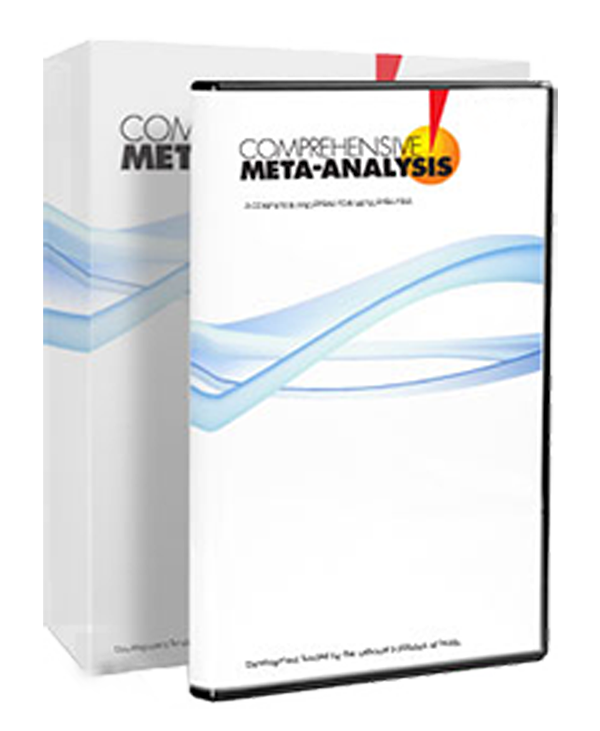Version 2 software
Important: Version 2 Users
If you own V2 and need to reinstall it on a new machine,
send us a note at [email protected] and we'll send a link to V2.
Comprehensive Meta-Analysis

Comprehensive Meta-Analysis (CMA) is a powerful computer program for meta-analysis. The program combines ease of use with a wide array of computational options and sophisticated graphics.

"Comprehensive meta‐analysis has been an easy to learn and reliable program that was my primary tool in conducting and publishing two large meta‐analyses in high impact factor peer reviewed journals."
Jennifer E. Hettema, Ph.D. - Assistant Professor, University of Virginia, Department of Psychiatry and Neurobehavioral Sciences, UVA Center for Addiction Research and Education, Richmond, VA
"Comprehensive Meta‐Analysis is a fabulous program for research synthesis, combining ease of use with advanced features not available in standard statistical packages or competing stand‐alone products. The program is ideal for independent analysis or reanalyzing data from another published review (including Cochrane reviews) to explore subgroups, moderator variables, and clinically relevant measures of effect size. Forest and funnel plots can be easily created and customized for publicationquality graphics. As editor in chief of Otolaryngology – Head and Neck Surgery, I find the program indispensable for preparing a quarterly installment, The Cochrane Corner, which highlights a relevant Cochrane review and provides expert commentary to aid clinicians in applying and understanding the results. I strongly recommend this program to novice and experienced meta‐analysts alike."
Richard M. Rosenfeld, MD, MPH - Professor and Chairman of Otolaryngology, SUNY Downstate Medical Center, Brooklyn, NY, Journal Editor and Chair, Guideline Development Task Force, American Academy of Otolaryngology – Head and Neck Surgery